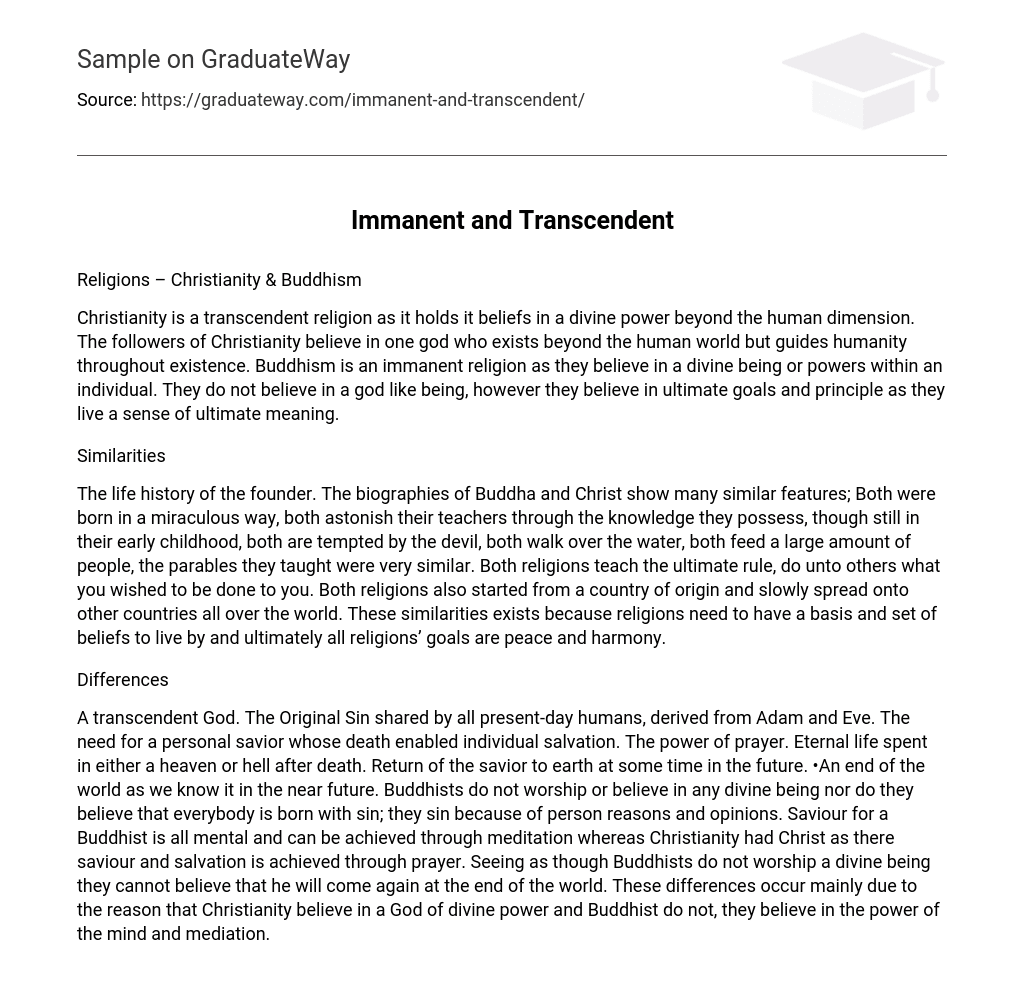Religions – Christianity & Buddhism
Christianity and Buddhism have contrasting views on the nature of divine power. Christianity is classified as a transcendent religion, acknowledging a divine power that exists beyond human realms. Adherents worship one god who transcends the human world but provides guidance to humanity. In contrast, Buddhism is considered an immanent religion, recognizing divine entities or forces residing within every individual rather than a deity-like being. Nevertheless, both religions embrace the notion of ultimate objectives and principles that grant them a profound sense of purpose.
Similarities
The life stories of Buddha and Christ, the founders of Buddhism and Christianity respectively, exhibit numerous similarities. Both figures were born miraculously and demonstrated exceptional knowledge at a young age that astounded their instructors. They encountered temptation from the devil and possessed the extraordinary ability to walk on water. Additionally, they both performed miracles by providing nourishment to large crowds and taught comparable parables. The core teachings of these religions emphasize the significance of treating others as one desires to be treated, often referred to as the Golden Rule. Both religions originated in a specific country but gradually expanded to other regions worldwide. These parallels arise from the fact that all religions require a foundation and a set of principles that direct their adherents towards attaining peace and harmony.
Differences
Christianity and Buddhism have contrasting beliefs and practices. Christians believe in a transcendent God, Original Sin inherited from Adam and Eve, the need for a personal savior who enables salvation through death, prayer, and the belief in eternal life spent in heaven or hell after death. They also anticipate the future return of their savior to earth and an ultimate transformation of the world.
On the other hand, Buddhists do not worship or have faith in any divine entity. They reject the idea of inherent sin but instead attribute individuals’ sins to personal views and choices. Buddhists seek salvation through a mental process achievable through meditation. Unlike Christianity, Buddhism does not expect a savior’s return at the end times. These differences arise primarily from Christianity’s belief in a powerful god while Buddhism focuses on mental strength and meditation.





